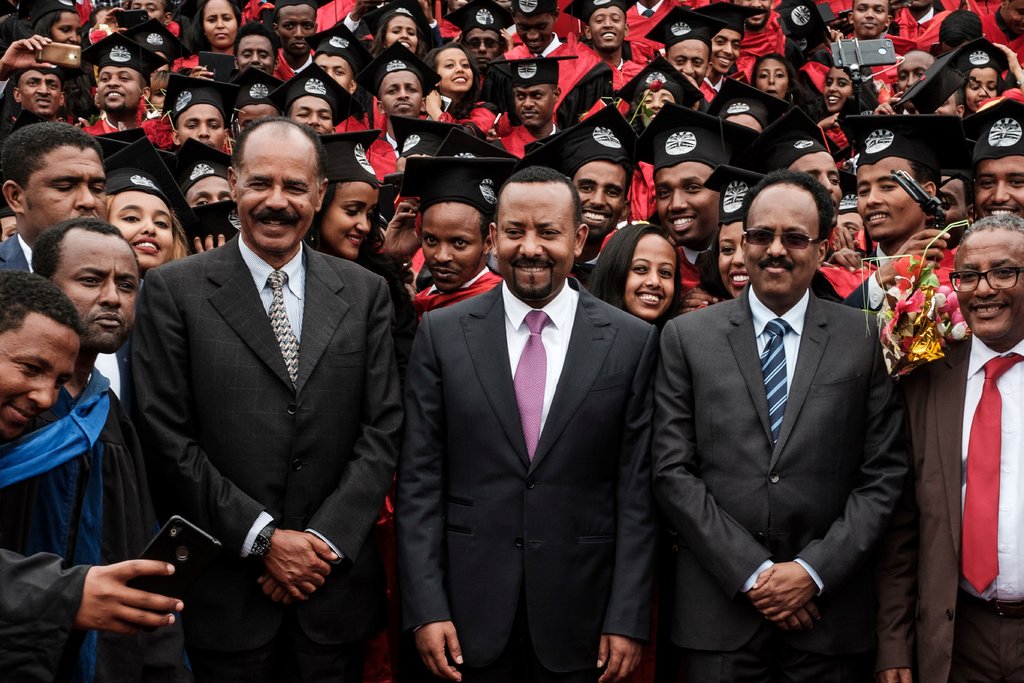U.N. Lifts Sanctions on Eritrea but Keeps Somalia Arms Embargo

BY: ![]()
The United Nations Security Council voted unanimously Wednesday to lift sanctions against Eritrea following its thaw in relations with Ethiopia and other neighbouring countries but kept an arms embargo on Somalia and a ban on trade in charcoal, a key source of money for Al-Shabab militants.
The resolution approved by the council, the United Nations’ most powerful body, commended “efforts toward peace, stability and reconciliation in the region” led by Ethiopia’s reformist prime minister, Abiy Ahmed, who came to power in April and accepted an international commission’s border decision favouring Eritrea.
Ethiopia is a regional power and actions by the country’s leader set off several diplomatic thaws, including one between Eritrea and Somalia. Leaders of Djibouti and Eritrea, which also had a turbulent relationship after border clashes, met with the help of Ethiopia, though there has been no breakthrough.
Mr Ahmed’s office said after the vote that the lifting of sanctions will have far-reaching effects in improving stability and building peace in the Horn of Africa.
“It will further enhance the collaborative gains that have been achieved in the region over the past few months,” the prime minister’s office said.
Eritrea, a former Italian colony, gained independence from Ethiopia in 1993 after a 30-year guerrilla war. It had a decades-long border dispute with Ethiopia, including a war from 1998-2000 in which about 80,000 people died.
The Security Council imposed an arms embargo and other tough sanctions on Eritrea in 2009 for supplying weapons to Somalia’s rebels, who opposed the Somali government, and for refusing to resolve a border dispute with Djibouti, a key American ally in the Horn of Africa.
Eritrea’s chargé d’affaires, Amanuel Giorgio, called the sanctions “unwarranted punitive measures” and told the council after the vote that “the long overdue call for justice is finally answered.”
“Eritrea recognizes that a more difficult and complex task is waiting ahead,” Mr Giorgio added. “It is determined to redouble its own efforts and work closely with its neighbours to build a region at peace with itself.”
As for Somalia, the resolution condemned continuing attacks by the Al-Shabaab, and expressed concern at the presence of affiliates of the Islamic State “and the security implications of the situation in Yemen for Somalia.”
It commended efforts by Somalia’s federal government to restore key economic and financial institutions and put in place anti-money laundering and counterterrorism measures. But it expressed concern at continued reports of corruption and diversion of public resources, including reports of “alleged financial impropriety” involving members of the government, Parliament and opposition.